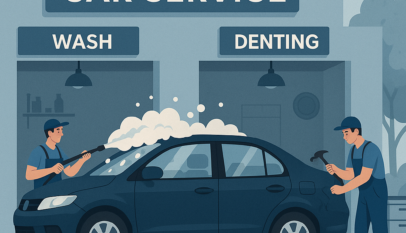
Reverse mortgages British Columbia offer homeowners a unique financial solution to access the equity in their homes. This product allows seniors to convert part of their home equity into cash, providing financial flexibility during retirement without the need to sell their property. It can help cover living expenses, healthcare costs, or even provide funds for unexpected expenses.
In recent years, the popularity of reverse mortgages has increased as more homeowners seek ways to supplement their income. Many seniors find themselves house-rich but cash-poor, and this option can alleviate financial stress while allowing them to remain in their homes. Understanding the mechanics of reverse mortgages, including eligibility, costs, and implications, is crucial for anyone considering this avenue.
As the landscape of retirement funding evolves, reverse mortgages can play a pivotal role in financial planning for seniors in British Columbia. Investigating this option may uncover opportunities to enhance financial security and maintain a comfortable lifestyle in the golden years.
Understanding Reverse Mortgages
Reverse mortgages are a financial product designed primarily for seniors, allowing them to access equity in their homes. This section explains the definition, eligibility criteria, and the potential benefits and risks associated with reverse mortgages in British Columbia.
Definition and How It Works
A reverse mortgage is a loan that enables homeowners aged 55 and older to convert a portion of their home equity into cash. The loan amount is based on the home’s value, the homeowner’s age, and current interest rates. Unlike traditional mortgages, no monthly payments are required.
Instead, the loan is repaid when the homeowner sells the home, moves out, or passes away. The homeowner retains ownership and responsibility for property taxes, maintenance, and insurance. Interest accrues on the loan amount, increasing the total debt over time.
Eligibility Criteria in British Columbia
To qualify for a reverse mortgage in British Columbia, the homeowner must be at least 55 years old. They must own their home outright or have a significant amount of equity in it.
Potential borrowers need to demonstrate their ability to cover property-related expenses, including taxes and insurance. Lenders also typically conduct a property appraisal to determine its market value.
Other factors such as credit ratings may be considered, though they are less critical compared to traditional mortgages.
Potential Benefits and Risks
The main benefit of reverse mortgages is access to cash without monthly repayments. This can help retirees supplement their income, cover healthcare costs, or make home improvements.
However, there are risks. The total debt increases over time, which can diminish heirs’ inheritance. Homeowners may also face challenges if property values decline, potentially impacting the amount available through the reverse mortgage.
Before proceeding, individuals should carefully evaluate their financial situation and consider seeking independent advice.
Process and Considerations
Understanding the process and important aspects surrounding reverse mortgages in British Columbia is crucial. This involves the application steps, financial implications, and the necessary legal considerations that protect borrowers.
Application Steps
The application process for a reverse mortgage in British Columbia typically follows several key steps:
- Initial Consultation: The borrower meets with a lender or mortgage specialist to discuss options and determine eligibility.
- Documentation: The applicant must gather necessary documents, including proof of income, credit history, and property value assessments.
- Application Submission: After gathering documents, the borrower submits the application for review.
- Home Assessment: An appraisal is often required to determine the home’s value. This affects the potential loan amount.
- Approval Process: The lender reviews the application and assesses the borrower’s financial situation. Once approved, the lender provides a loan offer.
- Closing and Funding: Upon acceptance, legal documents are signed, and funds are disbursed according to the agreed terms.
Financial Implications
A reverse mortgage can provide significant financial benefits, but borrowers must understand the costs involved:
- Loan Amount: Typically, homeowners can access 40-60% of their home equity.
- Interest Rates: Rates may be variable or fixed and can impact the total amount owed over time.
- Fees: Closing costs, appraisal fees, and other associated expenses may apply, affecting the net proceeds.
- Repayment: The loan is repaid when the borrower sells the home, moves out, or passes away.
Understanding these financial implications helps borrowers make informed decisions regarding their long-term financial planning.
Legal Considerations and Protections
Legal considerations are vital in the context of reverse mortgages. Key aspects include:
- Consumer Protections: Regulations ensure that lenders provide clear information about the terms and risks associated with reverse mortgages.
- Counseling Requirement: Borrowers are often required to undergo independent counseling to review their options.
- Title and Ownership: Borrowers retain ownership of their home, but the lender holds a lien. This means the home must be sold to pay back the loan upon maturity.
- Estate Implications: It is essential to understand how a reverse mortgage affects heirs and the distribution of an estate.
Being aware of these legal factors can help mitigate risks associated with reverse mortgages.
Recycling Drop Off: Essential Tips for Responsible Waste Disposal
Many communities offer recycling dropoff locations, providing an essential service for tho…










